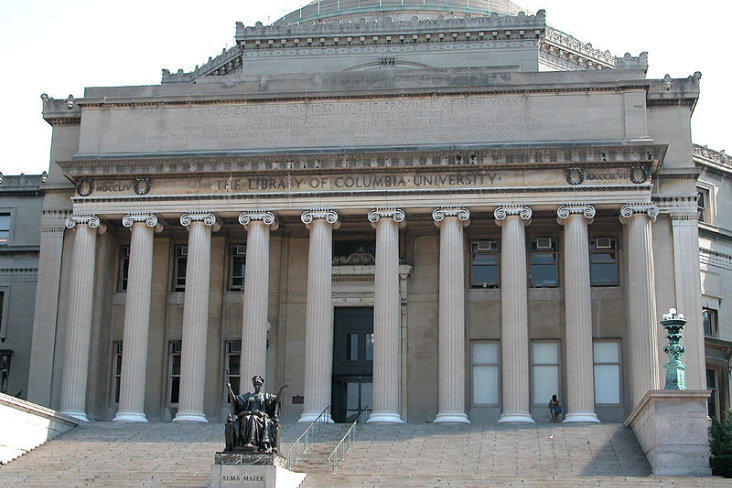Gaza solidarity encampments and the right of young people to demand change
10 May, 2024
Interview by Jessica Hopkins, adapted by Oto Sequeira. Image: Wikimedia Commons
On 17 April, student protestors at Columbia University in New York City established an encampment on campus, demanding the University increase transparency around its investments and divest from companies supporting Israel and its war on Gaza.
After being called in by Columbia University President, Nemat Minouche Shafik, on 1 May, hundreds of police officers entered the building students were occupying. Police arrested 282 pro-Palestinian protesters at Columbia and the City College of New York.
Columbia’s encampment has inspired 160 other Gaza solidarity encampments on university campuses across the US and in 25 other countries, where more than 2500 students have been arrested.
Senior Lecturer of Politics and International Relations at the University of Auckland, Dr Maria Armoudian, told 95bFM’s The Wire student encampments are not new and have historically influenced policy change by universities and the government.
Armoudian cites that in 1968, students established an encampment in protest of Columbia University’s ties to the Vietnam War, and the planned construction of a gymnasium that would segregate students by ethnicity.
“When you do not have your hands directly on the levers of power, one way to voice discontent with decisions being made has been demonstrations and protests.”
“The awful discrimination against African Americans led to the civil rights movement, and it took all kinds of action, civil disobedience, and lobbying to get any kind of a change.”
Armoudian says academic institutions have the right to shut down demonstrations if they become disruptive, but must also uphold students' rights to freedom of speech, as solidified in the First Amendment of the US Constitution.
“Universities are supposed to be places where people learn and exchange ideas.”
“There has to be a way where students can express their opinions, learn from each other, and use this as an educational moment.”
Public Interest Journalism funded through NZ On Air

 95bFM
95bFM 

